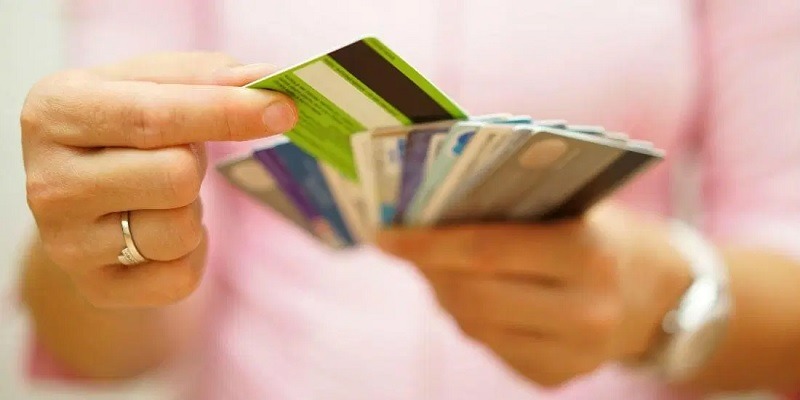
Making use of a credit card can make your everyday payments more convenient, but that isn’t their only perk. Using your credit card regularly can also help you build credit and can even improve your credit score in the future. Continue reading and learn how to improve your credit score by using a credit card.
How to Build Credit With a Credit Card
A lot of the time, you can apply for a credit card online and receive the decision immediately. However, before you begin submitting applications, do your research. Different cards have different interest rates, fees, rewards, credit limits, and other terms.
Also, take into consideration the differences between a store credit card and a bank credit card. According to Experian, one of the credit bureaus, store credit card are much easier to get approved for than bank credit cards. However, those cards may come with higher interest rates and fees.
Depending on your credit history, you might not be approved for the credit cards with the best rewards right from the start, but knowing how to use a credit card to build credit can help you get closer to the more exclusive benefits.
Start With a Secured Credit Card
If you don’t immediately qualify for a rewards cards as mentioned above, you can always try going for a secured credit card to help you build you credit score. A secured credit card is simply a card with a credit limit equal to the amount of your security deposit.
For example, to open this card you must make an initial deposit and let’s say it is $1,000. This means that you may only use up to $1,000 on your card. The secured card will then report your monthly payments to the three credit bureaus to help you build your credit history and improve your credit score. Eventually, your credit socre will be high enough for you to apply for more cards.
How Using Your Credit Card Increases Your Credit Score
Applying for a credit card is just the first step when you use credit cards to build credit. Limiting your charges and paying your bill on time will increase your score. Continue to use the credit card responsibly, or you could be putting your credit score at risk.
Your credit score can be broken down into five categories:
1. Payment History
By far one the largest determining factors of your credit score, your payment history means paying on time each month. Over time, you will build up positive credit history and that can boost your credit score. If you miss or make a late payment, you will hurt your score.
2. Amount Owed
The amounts you owe are reported to credit bureaus by your credit card company each month, which might not correlate with your payment due date. With credit cards, Experian recommends keeping your credit usage to less than 30 percent of your credit limit, and lower if possible.
3. Length of Credit History
There is no shortcut method of building a better credit score. As long as you start your credit card soon, you will be able to build credit faster. Your credit score also takes into account the average age of your accounts and your oldest open accounts. Therefore, if you close an old account, it can hurt your credit score. Another tip is, if you have a card that doesn’t charge an annual fee, then keep it open to maximize your credit score.
4. Credit Mix
Your credit score improves as you use different types of credit. Types of credit include both retail accounts and credit cards. People who have no record with credit cards tend to be viewed as higher risk than people who have managed credit cards responsibly, according to FICO, the credit score company.
5. New Credit
When applying for a new form of credit, such as credit cards, your lender will check your credit score. This will result in an inquiry on your credit report. Each hard inquiry, or hard pull, will lower your credit score temporarily. This pull will be on your credit report for two years, but its impact will decline over time.
 |
Bottom Line
Applying for a credit card can be a scary task, especially if you don’t have any credit history or have low credit. Simply use some of the tips we have listed above to help you fix that problem. For more posts like this, check out our list of bank guides and credit cards bonuses!



Leave a Reply